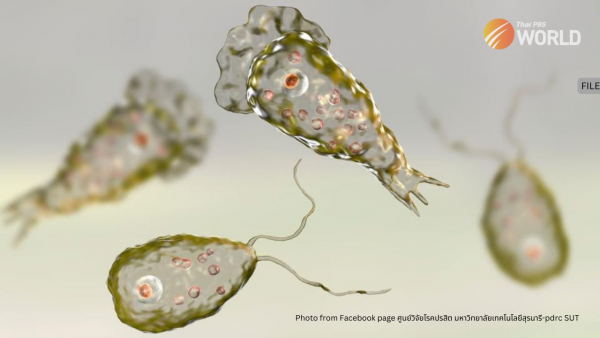The Thai Disease Control Department attempted to allay fears today (Tuesday) over infection by Naegleria fowleri, or brain-eating amoeba, following the death of a South Korean tourist after his return home after a visit to Thailand.
The department’s director-general, Dr. Tares Krassanairawiwong, said that the disease is not transmitted from human to human but it can be found in dirty water and enters the body when water containing the amoeba enters the through the nose.
He said that, since 1983, only 17 cases have been reported in Thailand and 14 of them died. Most of the cases ingested water from a pool or natural water source, he added.
Dr. Tares said that the best way to prevent the amoeba from entering the body is to avoid swimming or diving in dirty water and not allowing water to get into the body through the nose.
He expressed condolences to the family of the South Korean and thanked the South Korean Embassy in Thailand for reporting the case.
In the initial stages, symptoms of brain infection, or primary amoebic meningoencephalitis (PAM), may be similar to the symptoms of bacterial meningitis and usually start about six days after infection. They include headache, fever, nausea or vomiting. This can be followed by a stiff neck, confusion, lack of attention to people and surroundings, seizures, hallucinations and coma.
After symptoms start, the disease progresses rapidly and usually causes death within about five days.

